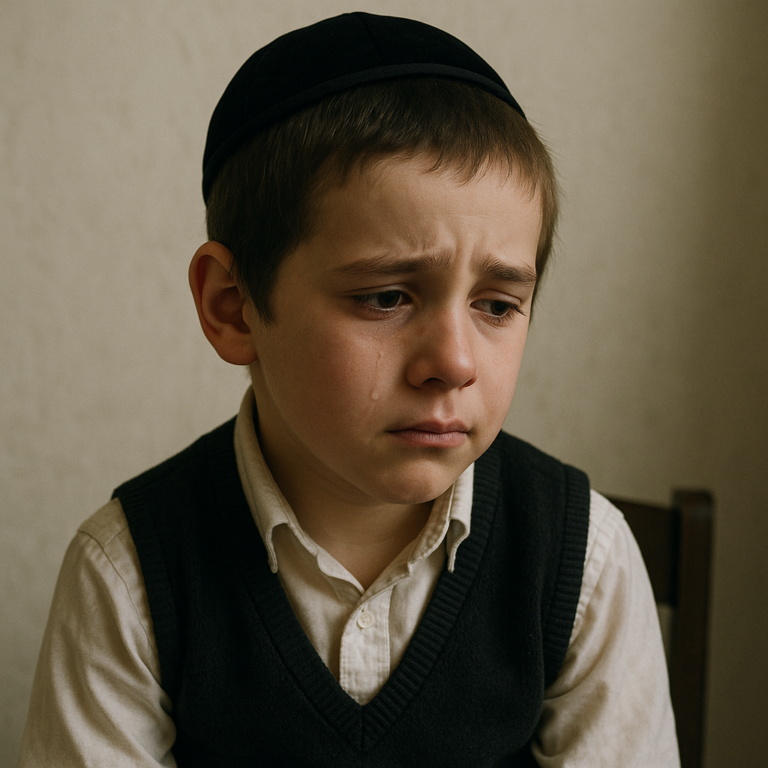 Monday’s High Court ruling against monthly payments to avreichim targeted the minimal funds received by them to feed families, a sum that permits an extremely modest lifestyle at best, less than 40% of the average government assisted income, literally “the bread and milk” from their tables as a number of chareidi MKs put it.
Monday’s High Court ruling against monthly payments to avreichim targeted the minimal funds received by them to feed families, a sum that permits an extremely modest lifestyle at best, less than 40% of the average government assisted income, literally “the bread and milk” from their tables as a number of chareidi MKs put it.
The High Court decision by five of the six justices presiding signaled the court was prepared for a possible call for another hearing before an expanded panel, assigning six justices instead of the usual three. This indicates another chance before the High Court is possible, but most unlikely.
One chareidi MK, Moshe Gafne, who also chairs the Knesset Finance Committee, told reporters on Monday afternoon that the High Court to the best of his recollection “never ruled in favor of chareidim” and the latest decision is in line with the court’s pro-secular ideology.
On the other side, some analysts point out that the High Court rarely wishes to hand down rulings in religious matters, citing a number of examples. In the case of drafting chareidi men, the matter was deferred to the Tal Commission. In the case of vehicular traffic on Bar Ilan Street, the case was deferred to a committee. The same is true in the Emanuel case; with the court hoping arbitrators would reach a solution. That case will appear before the court against today, 3 Tammuz. One of the justices is Edmond Levy, the lone voice in Monday’s ruling in favor of continued funding for avreichim.
Levy, a shomer shabbat yid, cited psukim and explained there is a Biblical command to learn Torah, adding that even when Jews were banished from Eretz Yisrael they learned, and through their learning, the Torah was not lost. He cited how this sector of society remains committed without limitations, without seeking degrees, and accepting a difficult lifestyle to maintain that which is paramount, the study of Torah. Nevertheless, his voice was a lone voice among the panel of six.
Another critic explained that if the avreichim were not working, they would be entitled to the supplementary income anyway due to their bleak economic status, so the court’s ruling is more of a matter of principle than the essence of the funding. Others of course argue that if they were not learning full time, and working, they would not be entitled to the state assistance.
Then again, others question why university students are not receiving a similar monetary assistance package.
One expert commenting was journalist Chaim Levinson, affiliated with Haaretz, who addressed the Tal Law, the law that permits avreichim to learn instead of being enlisted into the IDF. He has been following and reporting on the Tal Law since its inception. The next hearing in that case, one that may be decisive, is set for January 25, 2011. It will address a petition filed by former Minister Avraham Poraz (of the now-defunct Shinui Party), retired MK (Meretz) Ran Cohen and the Movement for Quality Government, challenging the legitimacy of Tal, which also grants special privileges to the chareidi sector.
Levinson explains that one major point is that it is difficult, legally that is, to support an argument that a minority population sector is the subject of favoritism at the expense of the majority, which was the case in the High Court ruling in this case, and indeed is applicable to the argument challenging Tal. He points out that most are unaware that the 10,000 or so avreichim who receive the funds involved in this court case are “Among the poorest families in the country” and this 1,000 shekels a month or so is literally their bread and milk money, nothing more.
He explained there are officially some 47,000 avreichim learning today, but only the poorest among them receive this monthly assistance, adding that one should not think for a moment that the others are living well, but relatively speaking, they are far better off than the 10,000 impacted by Monday’s court decision. In addition to the state aid he concludes, many tzedaka organizations work tirelessly to keep these families from starving.
What is certain is that the legislators have until 2011 to find a solution, but it will not be easy. Such a bill will demand approval of the Ministerial Legislative Committee, and it will require a majority in Knesset. Coalition member Yisrael Beitenu is unlikely volunteer to support continued chareidi funding for avreichim, and the same may hold true with Labor, another coalition partner.
The chareidi ministers, deputy ministers and MKs have their work cut out for them; leading legal advisors in that sector are already studying and dissecting the High Court’s ruling towards finding the correct legislation that will neutralize the ruling, while finding a palatable formula for the secular coalition members to raise their hands to support such a bill.
(Yechiel Spira – YWN Israel)











4 Responses
You also have to have 3 children and not own a car. I know i have friends in this position How many university students have 3 children and don’t own cars. It is charedi bashing at its worst. If I read this without know it was the leftist court of Israel I would believe it was communist russia or iran
The argument here seems to be that:
1) 1040 nis per month is bread money for avreichim. Whereas if a university student recieved that same money than it would be used for frivilous things like paying rent and cell phones ect…
2) That the prototype profile of an avreich receiving this assistance is 35 – 45 years old, with at least 3 children. Barely scraping by. And if this money is taken away from him, than his poor nebachal children will literally starve to death.
Does all this sound familiar? When B.B. Netanyahu adjusted the Kitzvat Yeladim, we kept hearing how thousands of chareidi are going to be malnourished and possibly even homeless! Oy Vey!!!
Yet, here is one more common denominator that these ‘poor’ people have. A huge percentage of them manage to give their daughters $75,000 to $150,000 towards an apartment when they get married. This is despite the kitzvat yeladim cuts, and despite the world wide recession. So somehow I dont think that many kids will be starving if they cut the 1040 nis. This money is not bread money, its apartment for the kids money.
ok. Go sit in their government. One day they will want to expel the Avreichim
It is not logical to blame a tinnuk shenishba for not wanting to support a lifestyle he/she does not believe in or understand.